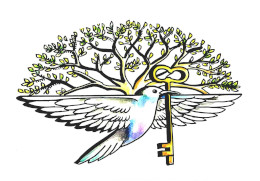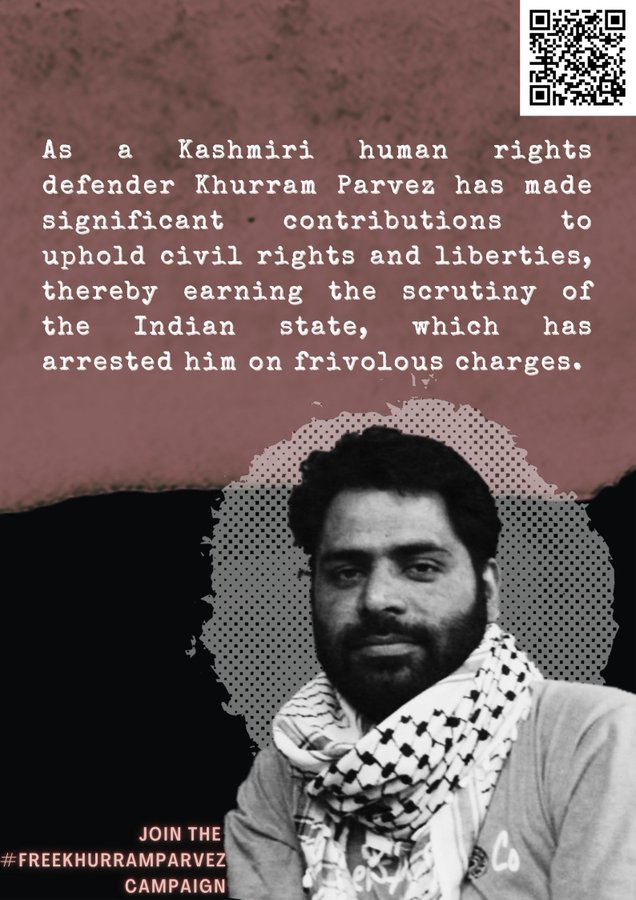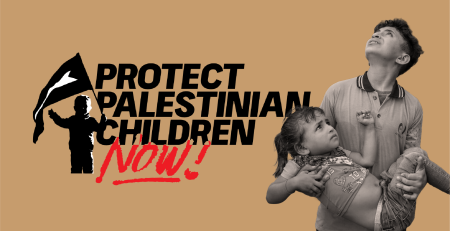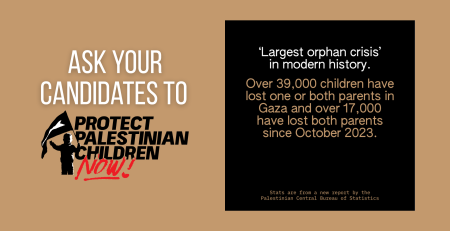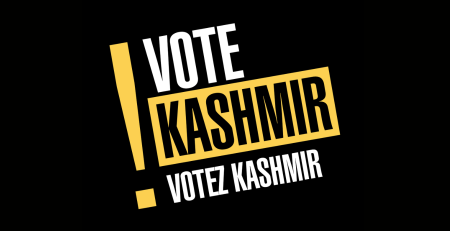It is a year since Khurram Parvez, a leading global human rights defender was arbitrarily detained at his residence in Srinagar in Indian occupied Kashmir.
At the time hundreds of letters were sent to Prime Minister Trudeau and Minister Joly, but they remain silent.
It is a year later. Let Trudeau and Joly know you have not forgotten.
Take a minute to write to Prime Minister Trudeau and Global Affairs Minister Mélanie Joly to demand Canada take action in regard to the ongoing arbitrary detention of human rights defender Khurram Parvez.
Other actions you can take:
Vote for Khurram
Khurram Parvez has been nominated for the human rights prize organized by a Spanish human rights NGO called APDHE (Associacion pro derechos humanos de Espana). Part of the judging process includes a public vote. Please vote for him and ask others to do the same: https://apdhe.org/poll/votacion-premios-derechos-humanos-2022-internacional/.
Join Twitter Storm
Join the Twitter Storm on Nov 22 & 23 to demand the immediate and unconditional release of Kashmiri human rights defender Khurram Parvez. #FreeKhurramParvez #FreeAllPoliticalPrisoners
Join #FreeKhurramParvez campaign
“He’s not a terrorist, he’s a human rights defender.” – Mary Lawlor, UN Special Rapporteur on the situation of human rights defenders
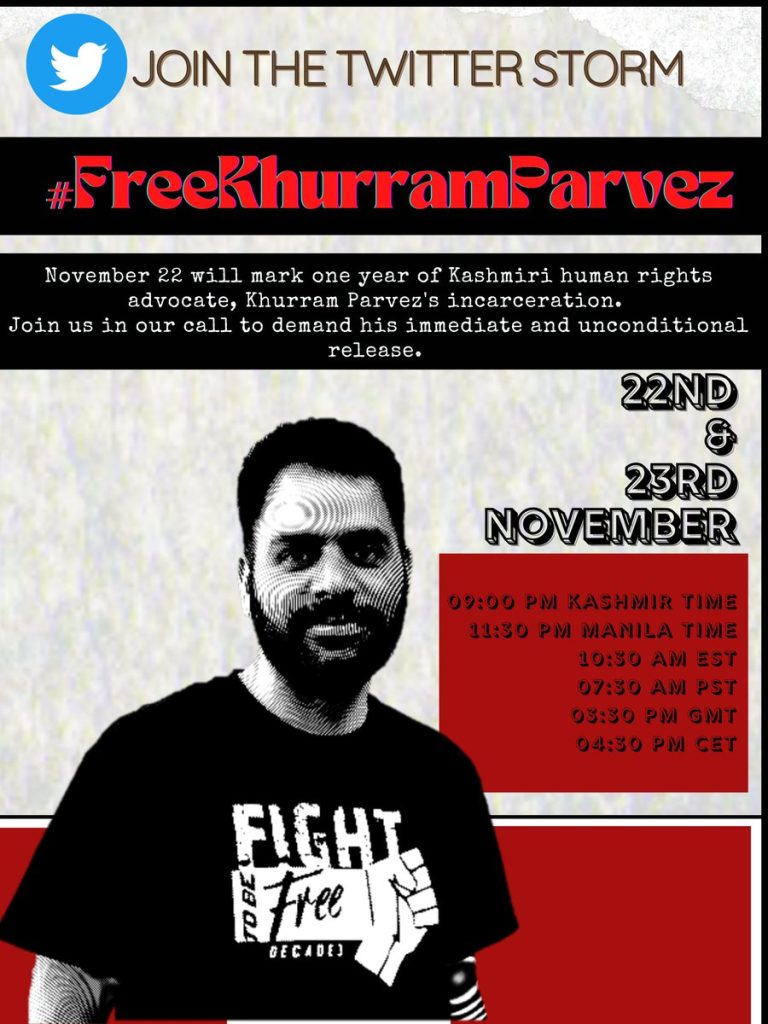
Ways to amplify the call for #FreeKhurramParvez:
● Take a picture holding a placard with a message of solidarity for Khurram or his picture. Use the hashtag #FreeKhurramParvez
● Record a video of yourself and share it from your social media accounts and tag us using the hashtag #FreeKhurramParvez . You can use the suggested script or share your message of solidarity.
● Participate in the Twitterstorm on 22nd and 23rd November at 07:30 am PST/03:30 PM GMT/ 10:30 AM EST/ 04:30 PM CET . Sample tweets are available here bit.ly/freekhurramcampaign
● Re-share messages from Free Khurram Campaign social media.
Background:
Indian authorities arrested Khurram Parvez on November 22, 2021. Parvez is a widely respected human rights defender. For defending human rights, the Indian state has long persecuted him and is now pretextually prosecuting him under counter-terror laws. His most recent arrest represents an escalation of India’s campaign to suppress the democratic and human rights of disfavored groups and ensure impunity for state violations.
Parvez is the Program Coordinator of Jammu Kashmir Coalition of Civil Society (JKCCS) and Chairman of the Asian Federation Against Involuntary Disappearances. He has been a respected global human rights advocate for over two decades, including in India, Jammu and Kashmir, Pakistan, East Timor, the Philippines and Sri Lanka. His documentation and advocacy work has focused on torture, extrajudicial killings, involuntary disappearances and landmine removal. Both he and the organizations he leads have been recognized for their work, including through the Reebok Human Rights Award and the Rafto Prize.
In Jammu and Kashmir, victims generally avoid reporting violations out of fear of reprisals. With the repeated seizure of records from civil society organizations (including JKCCS) and the arrest, assault and intimidation of activists (including Parvez), victims face greater risk of reprisals and less hope for accountability. In Kashmir, where there is no representative governance, no international access, no free speech, no free assembly and no access to justice, both journalism and human rights work are now effectively dead.
Parvez’s arrest furthers the Indian state’s broad assault on civil society. As India’s national security adviser recently acknowledged, the Indian state is at war with civil society. Through statutes like the Unlawful Activities Prevention Act, the Indian state has expanded its arsenal of lawless laws in Jammu and Kashmir and ramped up its war against dissenting voices, civil society and marginalized groups.
#FreeKhurramParvez
https://freekhurram.com
https://twitter.com/FreeKhurram2021
https://www.instagram.com/freekhurram2021/
Human Rights Defenders and Journalists
The New York Times reported on November 23, 2021 “Khurram Parvez’s detention has deepened concerns that the Modi administration is abusing the law to squelch dissent.”
Parvez’s arrest came within India’s most recent crackdown targeting activists, journalists, and political leaders seen as critical of Indian Prime Minister Modi’s government. Over the last year, journalists have been increasingly concerned about harassment and threats of arrest in the context of a longer gradual process of dismantling freedom of the press.
In November 2021, the arrest of Khurram Parvez was widely reported in international media and strongly condemned by the international human rights community.
However, in Canada the Subcommittee for International Human Rights (SDIR) of the Standing Committee for Foreign Affairs and International Development has just released its report on “The Situation of Human Rights Defenders, Journalists and Media Organizations” (November 2022) with no mention of Parvez or other human rights defenders media organizations nor journalists under prosecution in Indian Occupied Kashmir.
We also wait to hear from the Bloc Quebecois who during the 2021 federal election indicated that India, by its non-compliance with UN resolutions, deserves to be called to order by the Canadian government and held accountable for its non-compliance with UN resolutions, and that they will not hesitate to submit a motion to the House of Commons to make the Modi government back down and backtrack on all its violations related to Kashmir The Bloc Quebecois also has indicated that they always denounce political imprisonment, and they won’t hesitate to do the same for Kashmiris. However, so far they has not taken any action, nor responded post-election to requests for action.
The situation in India occupied Kashmir and international accountability
Arbitrary detention is a grave and longstanding problem in Indian Occupied Kashmir. Hundreds of thousands of Kashmiris were arbitrarily detained in the three decades prior to 2019, some of who remain detained today. An estimated 13,000 Kashmiris were detained in August 2019. Since that time, thousands more Kashmiris, including dozens of journalists, human rights defenders, scholars, religious leaders and political activists, have been arbitrarily detained.
It is important that all states committed to the protection of human rights and democracy, and the United Nations, urge Indian authorities to immediately and unconditionally release and drop all charges against Khurram Parvez. It is critical that India end the harassment, intimidation, and persecution of Kashmiri human rights defenders as well as journalists, civil society members, scholars, artists, religious leaders and others exercising freedom of speech and expression.
It is important that Canada exert its influence to cause India to cease the criminalization of dissent in Indian-Occupied Kashmir, including through the repeal of repressive laws like the Unlawful Activities (Prevention) Act. In 1948, the UN Security Council mandated that India protect the people of Jammu and Kashmir’s rights to freedom of the press, speech, assembly and travel and facilitate their exercise of their right to self-determination through a plebiscite. Ending the ongoing criminalization of dissent in the current degraded human rights situation in Indian-Occupied Kashmir is a critical initial step towards defending global human rights and achieving peace and security in the region.
Canada was a key architect of the international commitment for this plebiscite with the then Canadian UN ambassador Andrew McNaughton being president of the UNSC Resolution providing leadership to the creation of UNSC Resolution 47 (1948).
Read more HERE.
